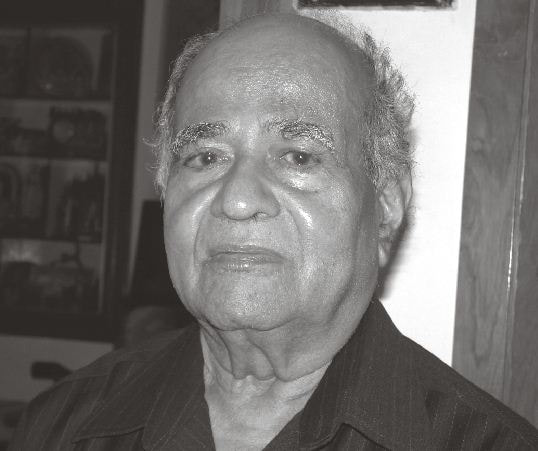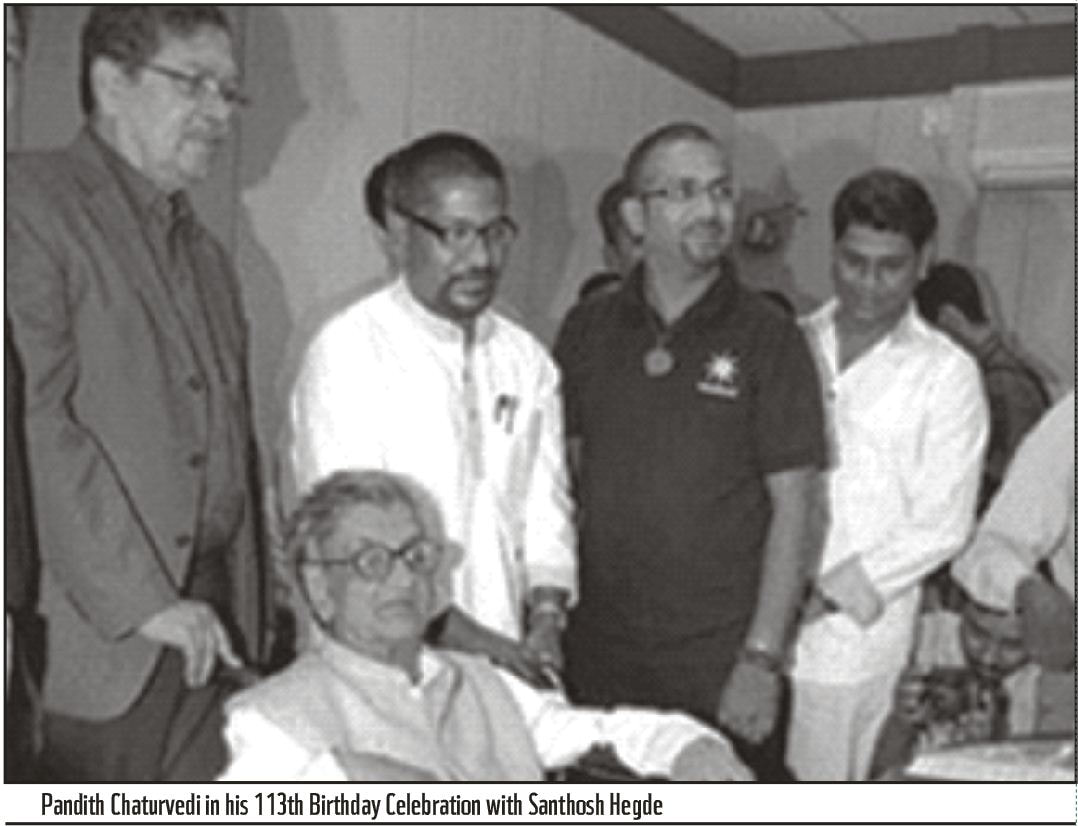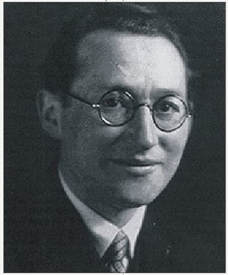|
The first relief and rehabilitation work by the Tata Institute of Social Sciences (TISS) can be traced back to 1948 when, after Partition, a batch of students worked in the refugee camps in Kurukshetra.
Excerpts from the interview of a former student, who was part of the second batch on the Deonar campus and later went on to head the institute, reveal that back then students took a "rattle truck bus", run by a private individual, to go to Sion. "The footboard was so weak that we afraid we would fall. We had to climb in somehow and get to Sion if we couldn't catch the institute bus, says professor Armaity Desai as she reminiscences about her student days. That Karnataka desperately needs a rural development strategy is amply clear from two recently released reports. The Census 2011 report on the state population highlights the enormous migration deluge into Bangalore and other cities. The other report 'Injury and Violence in India: Facts and Figures', jointly authored by NIMHANS and WHO, provides a stark picture on the increasing number of suicides in cities due to high levels of stress experienced by people, especially teenagers and women. The rapid deterioration in the standard of living in cities across Kamataka should compel the state government to map out a comprehensive rural development strategy that will boost job creation and development in rural areas while ending migration into cities.
Disadvantaged Rural Communities
'Farming is becoming an unreliable livelihood. Failure of crops shattered my hope. Could not repay the loan; instead interest and interest-on-interest increased which came to a point where I could not at all repay it. Gone are the olden days where there was mutual support and concern in our villages. Now no one can help anybody during distress. This economic orphanhood combined with social orphanhood pushed me to Bangalore - the only option for the survival of my family', this is the statement of 45 year old Parasappa who has migrated to Bangalore and is now working as a construction worker here. In India, around 13 to 14 per cent of all School Children suffer from Specific Learning Disability as per 2000-2001 censuses of India statistics. The disability is acquired during the pregnancy itself. But it will come to light only after 2 years of birth. Early detection, regular treatment and good family support play a crucial role in dealing with this problem. If it is not so, it will be prolonged throughout their life cycle.
Namaskara.
Dear friends Prof. H.M. Marulashiddaiah respected guests Mr. Rajasekharan, Dr. Sudarsan & Other Friends. I would first of all like to express my gratitude for the opportunity to attend this programme and having been invited say a few words about Social Work from a Swedish perspective. Thanks to prof. Marulasiddaiah and the organize of this event. And as always I am impressed by the way that we are received here. We feel most welcome and everything is so well organized. I think I speak for my wife as well here. Before I give you some pointers to the situation in Sweden regarding the Social Work field, it might be a good idea to say something about my university and our social work education. Introduction:
In s outh India, Tamil Nadu forms one of the major zones that consist of important tribal groups. According to the 2001 census, the Scheduled Tribe population in Tamil Nadu is 6.51 lakhs, consisting of 1.04 per cent of the total population. Thirtysix Scheduled Tribes have been notified in Tamil Nadu by the Scheduled Castes and Scheduled tribes order (Amendment) Act 1976 and among them, six groups namely, Paniyan, Todas, Kotas, Irulas, Kattunayakkan and Kurumbas are categorized as particularly vulnerable tribal Groups who are populated in Nilgiri District. Experience on rehabilitation of children and the challenges in the process from Bangalore Government Children’s Homes If you enter the CWC, Bangalore Urban hall on any given day you would find several boys being herded. You would also find some adults waiting for their turn to be called in. A few adults would be discussing with the children. A few officers would be rustling with their files and piles of papers. NGO personnel also would be going round with their files and papers meeting the Committee members, children and their parents or employers or identified touts who might be responsible for bringing children from far off places. You may also occasionally find some police men and advocates.
The Role of Social Workers as Human Rights Workers with Disadvantaged People and Communities*1/2/2018 I would like to begin by acknowledging the traditional owners of the land we meet today, the Kukkarahalli / Paduvarahalli people. Thank you to the Academic Staff College, University of Mysore for inviting me to speak today.
Also, thank Prof Muzaffar Assadi, the Course Coordinator for his introduction. Social workers by very definition are human rights workers. Social workers help individuals realize their rights everyday and are ideally placed to help communities claim their collective rights. Community inclusion for people with psychiatric disabilities and role of Psychiatric Social Worker1/1/2018 Introduction
In many countries of the world today, people with disabilities are deprived of their rights and liberties, excluded from society, and blamed for many of society's most unsolvable problems, such as crime and homelessness. People with disabilities, particularly people with mental disabilities are involuntarily locked away in institutions, subjected to abuse and neglect, and deprived of their right to live as equal citizens in the community. Persons with disabilities often are excluded from the mainstream of the society and denied of their human rights. Studies now suggest that treatment through community inclusion for many people with mental disabilities in the world is less costly than institutionalization, and that treatment is usually more effective.(1) Sir Dorabjee Graduate School of Social Work which was established in 1936 became Tata Institute of Social Sciences after about 4 years. The reasons for change of name is not known, though this may be available in the TISS records. While the name of the institution was changed, the name of the journal published by TISS remained unchanged,an anamoly which needs to be corrected. It is time-after the 2006 major restructuring of TISS, that the name of the journal should also be changed to the “Indian Journal of Social Sciences” (Incorporating the Indian Journal of Social Work).
Dr. Vasudev. Pandurangi Life History
Date of birth : 5th January 1930 Place : Ranebennur, Karnataka Father’s Name : Ramacharya Mother’s Name : Seethabai Brothers : Three Sisters : Four Education : MD (Obstetrics & Gynecology) Grant Medical College Bombay Marital Status : Married with three children-two sons and one daughter To say whether the concept of welfare state is being realized in India one should be clear in ones mind what is a welfare state. A welfare state is described as a System under which the state undertakes to protect the health and wellbeing of its citizens by means of grants, pension and other benefits(1). “A welfare state is one that guarantees broad services of economic protection that any citizen claims that he is longer able to provide himself(2). In a welfare state benefits which an individual receives are political rights not charity and there should be no occasion for apology or embarrassment when an individual applies for the benefits. The services provided by the state should be parallel in quality to those given to individuals who are able to draw on private sources. These are elements that by any meaningful way make up a welfare state.3 A Welfare state should make provisions to provide for health, education, employment, sanitation, good drinking water, Unemployment, removal of poverty, housing and other basic needs of people. To assess whether India has become a welfare state or has been endeavoring to become one, should know how much improvement government of India has brought about the wellbeing, health, standard of living, economic conditions, education, employment and environment of its people.
The Office of the Welfare Commissioner, Bangalore was set up in the Year 1964 to provide various measures to the workers engaged in the Unorganised Sector.
Basic definition of the Unorganised workers goes as “unorganised sector worker” means a home based worker, self-employed worker or a wage worker in the unorganised sector. There are various kind of workers who comes under the definition of unorganised workers like street vendors, domestic workers, construction workers, agarbatti rolling workers, engaged in manufacture of fireworks, toddy workers, salt extraction workers, fishrmen etc, which is much more wide and scattered around the country. The Constitution of India is based on the principles of equality and guarantees equality before law and equal protection to all its citizens. It not only guarantees fundamental rights and freedoms, but also prohibits discrimination on the basis of religion, race, caste, sex, and place of birth. However, these rights have remained de jure and have not been translated into de facto rights. As such, women have been denied social, economic, civil and political rights in many spheres. An important area where women have been inadequately represented is in the political sphere. Articles 325 and 326 of the Constitution of India, guarantee political equality, equal right, to participate in political activities and right to vote respectively. While the latter has been accessed, exercised and enjoyed by a large number of women, the former i.e., right to equal political participation is still a distant dream. Lack of space for participation in political bodies has not only resulted in their presence in meager numbers in these decision making bodies but also in the neglect of their issues and experiences in policy making.
Pandith Sudhakara: An Ardent Patriot and a Vedic Scholar (A Link between three Centuries)10/31/2017 SUDHAKAR Chaturvedi (born 20 April 1897) is a Vedic scholar who lives in Jayanagar, Bangalore in Karnataka, India. The surname Chaturvedi literally means “Master of the four Vedas”, but in the present time it has become a common surname; however, Sudhakar Chaturvedi is a Chaturvedi in the original sense as he has spent a majority of his life studying the four Vedas. He was given the name "Chaturvedi" for his knowledge of the Vedas. He is a disciple of Swami Shraddhanand at Gurukul Kangri in Haridwar, where he got his Veda Vachaspati degree (equivalent to a Post Graduate Degree).
International Field Training
Mid Sweden University has a long tradition of international field training for social work students. Over the years we have had more than 1000 students travelling to other countries. India stands out as one important partner and our students have most certainly learned a lot from Indian social workers and scholars. Some of these experiences resulted, on the initiative of professor Marulasiddaiah, in the book “Devotion and empowerment”(Ottelid, 2008). It was probably the April of 1974. Bangalore was getting warm and gulmohars were blooming at the IISc campus. I was the only girl in my postgraduate department and was staying at the ladies' hostel. Other girls were pursuing research in different departments of Science. I was looking forward to going abroad to complete a doctorate in computer science. I had been offered scholarships from Universities in the US... I had not thought of taking up a job in India.
John was having trouble in his Indian history class. He wasn’t focused in class, never turned in homework, and was in danger of failing and having to repeat the eighth grade. Repeated calls to John’s parents from both his teacher and his school counselor brought no responses. The school administration, then called in the school social worker who visited John’s home and talked to his parents. The family was going through a crisis brought on when John’s father lost his job. After several months of job searching, he remained unemployed and had begun drinking alcohol to excess on an almost daily basis. This led to marital problems and a generally unhealthy home atmosphere. The school social worker was able to direct John’s parents to appropriate community agencies that could help the family deal with the stressful situation. She also set up a testing and counseling session for John. Several months later, the family was in group counseling and John was in a special after-school tutoring program. John’s father still had not found a job; but the family was on a more even keel, and it looked like John was going to pass Indian history.
Children of today are the youth of tomorrow. HIV affects this very precious generation and bear grave consequences to our future, our nation, the continent and the world at large. Children and adolescents are an ever-growing part of the HIV/AIDS epidemic. The impact of paediatric AIDS on the families and on the society at large is only beginning to be fully appreciated. The occurrence of a life threatening illness during childhood has a profound effect on the psychological, social and spiritual integrity on the child and the family. The life threatening illness adds additional challenges to the family where multiple family members are often infected, ill, dying or dead.
The most common emotions among the children in early and late childhood are anger, fear, jealousy, curiosity, envy, joy and grief. Emotions are intense during Childhood. Angry feelings are normal emotional reactions to daily stresses in life that range from irritated to enraged. Although any emotions may be heightened in the sense that it occurs more frequently and more intensely than is normal for that particular individual, heightened emotionality in early childhood is characterized by temper tantrums, intense fears and unreasonable outburst of jealousy. Much of the heightened emotionality characteristics of this stage is psychological rather that physiological in origin.
Kurt Zadek Lewin (September 9, 1890 - February 12, 1947) was a German-American Psychologist, known as one of the modern pioneers of social, organizational, and applied psychology. Lewin is often recognized as the "founder of Social Psychology" and was one of the first to study group dynamics and organizational development.
There is a lot of hue and cry in the society for the equal status for women. Though few women have secured that status in some advanced countries, much has to be done to secure women the status that makes them avail the opportunities.
To demand this status there are lots of organizations working around. It is a task, a war against the age old practices, traditions which often have the last laugh even now.! The trend has changed. Working for the upliftment of status of women is a mission no doubt, but the rate at which dwindling ratio of women in comparison to men needs to be attacked to. Abstract
Field work occupies a very significant position in the curricula for Social Work Education as it is an integral part of the training programme. Field work in Social Work Education refers to training and education. It is a dynamic process of observing to acquire creative and innovative ideas. It helps the Social Work trainees for the development of their intellectual and emotional attitudes. It is a combination of both theory and practice along with philosophy for the action. This technique depends on scientific knowledge to understand the people and the social phenomenon. It provides an opportunity for the Social Work trainees to apply their theoretical Knowledge to understand the practical aspects. If the social work practitioner desires to be effective in his venture, it is not only enough to acquire requisite knowledge of theory but it is equally necessary to gain experience through practice in the field by using such knowledge. Field Work opens the platform for Social Work trainees to apply theoretical knowledge acquired through many ways but mainly through attending classes and reading the concerned literature. This type of situation in Social Work is described as ‘Professional application’ part of Social Work education. This article examines the criteria of routine activities of public student performance, peer accountability, adaptive anxiety, and accountability of field work in Social Work education. It argues that field work is the backbone of Social Work education and it has to be utilized in its fullest sense to strengthen the effectiveness of social work education. Who are we:
Sofia Idström, 26 years, comes from Gothenburg in Sweden. I have one bigger brother, Alex who does his PhD in chemistry, Father J.P, doctor in Chemistry, mother Ulla, social worker. I finished 12 standard in 2003 and after that I travelled India, South America, Oceania and Europe and I have been working. I started my social work studies in 2008 at MidSweden University, Östersund. I love travelling, playing and listening to music, create, and photography. A note on Social Work Education (indirectly talks about the profession also) in the light of present day realities.
A question comes to mind that.... Is Social Work Education a Panacea for the Present Societal Challenges? Globalization impacts on all countries, adversely affecting developing countries such as India. Global and national standards for Social Work Education should develop appropriate perspectives addressing the negative feelings of communities. |
Categories
All
Social Work Learning Academy50,000 HR PROFESSIONALS ARE CONNECTED THROUGH OUR NIRATHANKA HR GROUPS.
YOU CAN ALSO JOIN AND PARTICIPATE IN OUR GROUP DISCUSSIONS. MHR LEARNING ACADEMYGet it on Google Play store
|
SITE MAP
SiteTRAININGJOB |
HR SERVICESOTHER SERVICESnIRATHANKA CITIZENS CONNECT |
NIRATHANKAPOSHOUR OTHER WEBSITESSubscribe |
MHR LEARNING ACADEMY
50,000 HR AND SOCIAL WORK PROFESSIONALS ARE CONNECTED THROUGH OUR NIRATHANKA HR GROUPS.
YOU CAN ALSO JOIN AND PARTICIPATE IN OUR GROUP DISCUSSIONS.
YOU CAN ALSO JOIN AND PARTICIPATE IN OUR GROUP DISCUSSIONS.
|
|









 RSS Feed
RSS Feed





